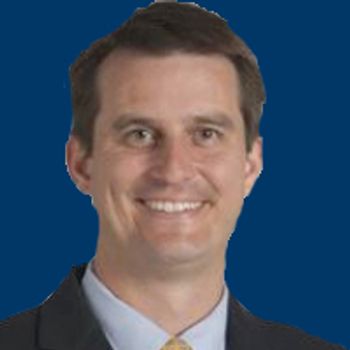
Brian T. Hill, MD, PhD, discusses recent advances and regulatory decisions in the treatment of patients with chronic lymphocytic leukemia.

Your AI-Trained Oncology Knowledge Connection!


Brian T. Hill, MD, PhD, discusses recent advances and regulatory decisions in the treatment of patients with chronic lymphocytic leukemia.

Hetty Carraway, MD, highlights ongoing genomic research in acute myeloid leukemia, as well as recent therapeutic advances in the field.
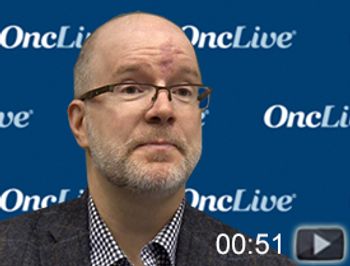
Nathan A. Pennell, MD, PhD, director, Lung Cancer Medical Oncology Program, Cleveland Clinic Taussig Cancer Institute, discusses the cost-effectiveness of next-generation sequencing for patients with metastatic non–small cell lung cancer.
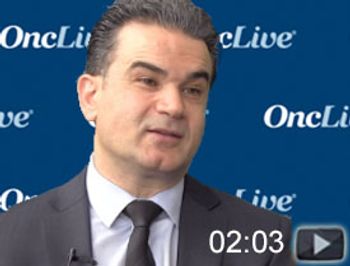
Ahmad Tarhini, MD, PhD, director, Melanoma and Skin Cancer Program, Center for Immuno-Oncology Research, Cleveland Clinic, discusses some recent practice-changing clinical trials in melanoma.

Priyanka Gopal, MD, and Mohamed E. Abazeed, MD, PhD, discuss radiotherapy in the era of precision medicine.

The National Heart, Lung and Blood Institute, part of the National Institutes of Health, awarded a $4.7 million grant to Cleveland Clinic to study the prevention of life-threatening, cancer-associated blood clots.

Brian I. Rini, MD, discusses atezolizumab plus bevacizumab as an effective frontline combination in renal cell carcinoma, as well as patient reported outcomes with the regimen.
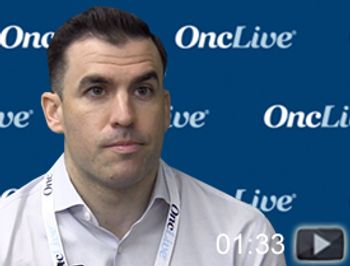
Anthony Costales, MD, gynecologic oncology fellow, Cleveland Clinic, discusses a study of adjuvant therapy for patients with uterine leiomyosarcoma.
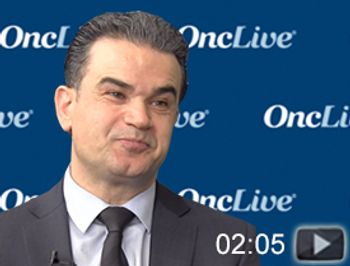
Ahmad Tarhini, MD, PhD, director, Melanoma and Skin Cancer Program, Center for Immuno-Oncology Research, Cleveland Clinic, discusses adjuvant therapy for patients with melanoma.

Cancer specialists will collaborate on treatment plans and expanding patient access.

Although the standard-of-care treatment for patients with liver metastases developing from colorectal cancer is liver resection, only one-third of these patients are candidates for surgery.
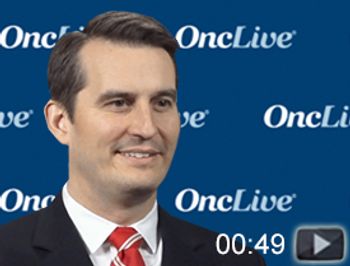
Brian T. Hill, MD, PhD, assistant professor, Hematology and Oncology, Cleveland Clinic, discusses combinations for the treatment of patients with mantle cell lymphoma.

Brian T. Hill, MD, PhD, discusses acalabrutinib and ibrutinib’s efficacy in patients with mantle cell lymphoma and highlights emerging novel strategies in the treatment landscape.

Brian T. Hill, MD, PhD, assistant professor, Hematology and Oncology, Cleveland Clinic, discusses BTK inhibitors in mantle cell lymphoma (MCL).
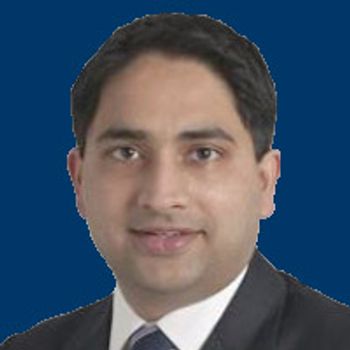
Although many new therapies have been introduced in a range of cancer types, brain metastases remain a serious neurological complication in patients with advanced malignancies.
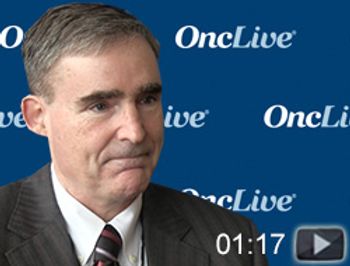
Steven Campbell, MD, PhD, urologist, Cleveland Clinic, discusses the goals of the newly updated guidelines in renal cell carcinoma.
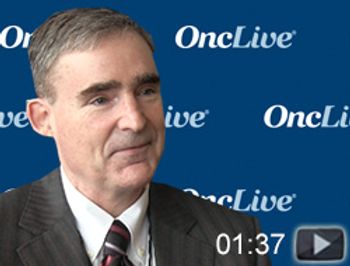
Steven Campbell, MD, PhD, urologist, Cleveland Clinic, discusses recent advancements in the management of kidney cancer.
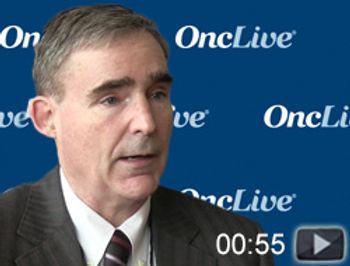
Steven Campbell, MD, PhD, urologist, Cleveland Clinic, discusses the role of radical nephrectomy according to the guidelines for patients with renal cell carcinoma (RCC).
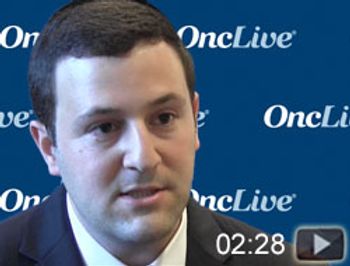
Moshe Ornstein, MD, staff, Cleveland Clinic, discusses the challenges surrounding immunotherapy for patients with renal cell carcinoma.

Andrew Stephenson, MD, discusses the impact of various approaches—radiation, surgery, and active surveillance—on patients’ quality of life 2 years following treatment.

Andrew J. Stephenson, MD, director for the Center of Urologic Oncology at the Cleveland Clinic, discusses advancements being made in the field of prostate cancer.

Jihad Kaouk, MD, urologist, Cleveland Clinic, discusses challenges regarding robotic surgery for patients with renal cell carcinoma (RCC).
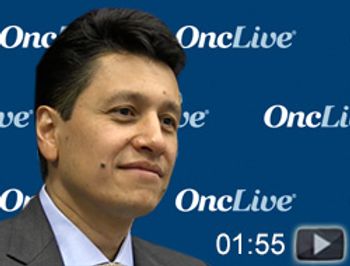
Jorge Garcia, MD, Department of Hematology and Oncology, Cleveland Clinic, discusses the LATITUDE study in prostate cancer.
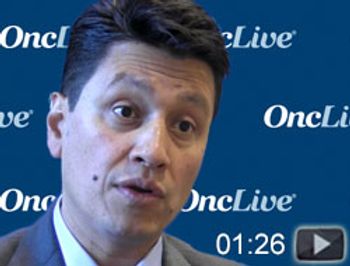
Jorge Garcia, MD, Department of Hematology and Oncology, Cleveland Clinic, discusses selecting a second-line and beyond immunotherapy treatment for patients with bladder cancer.

Brian Rini, MD, discusses the KEYNOTE-426 study and the promise of emerging combinations in renal cell carcinoma.
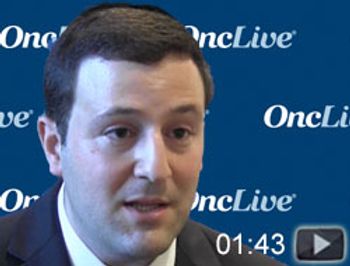
Moshe Ornstein, MD, staff, Cleveland Clinic, discusses the role of interleukin-2 (IL-2) going forward in patients with renal cell carcinoma (RCC).
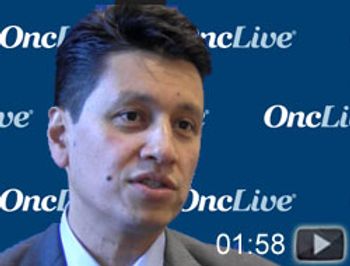
Jorge Garcia, MD, Department of Hematology and Oncology, Cleveland Clinic, discusses the optimal sequence of immunotherapies for the treatment of patients with bladder cancer.
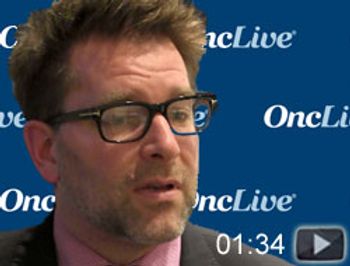
Andrew Stephenson, MD, director of Urologic Oncology, Cleveland Clinic, discusses patient preferences with undergoing active surveillance versus active treatment for their prostate cancer.

Brian I. Rini, MD, professor of medicine, Cleveland Clinic, discusses the potential of immunotherapy as an adjuvant treatment for patients with renal cell carcinoma (RCC).

Brian Rini, MD, discusses additional adjuvant trials that have perplexed the field, what potential immunotherapy could have in this setting, and other obstacles to tackle in the renal cell carcinoma landscape.